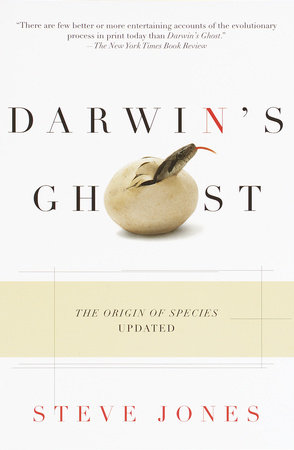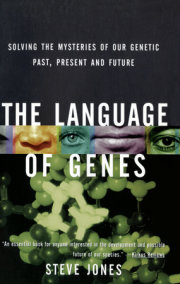According to a 1991 opinion poll, a hundred million Americans believe
that "God created man pretty much in his present form at one time during
the last ten thousand years." A large majority saw no reason to oppose
the teaching of creationism in schools. They followed in a long
tradition. A text of 1923, Hell and the High Schools, claimed that: "The
Germans who poisoned the wells and springs of northern France and
Belgium and fed little children poisoned candy were angels compared to
the text-book writers and publishers who are poisoning the books used in
our schools . . . Next to the fall of Adam and Eve, Evolution and the
teaching of Evolution in tax-supported schools is the greatest curse
that ever fell upon this earth."
Fifty pieces of legislation tried to put a stop to the subject. All
failed. Undeterred, Alabama called for a note to be pasted into
textbooks: "This book may discuss evolution, a controversial theory some
scientists give as a scientific explanation for the origin of living
things, such as plants, animals and humans . . . No one was present when
life first appeared on earth. Therefore, any statement about life's
origins should be considered as theory, not fact." In 1999 the Kansas
Board of Education voted to remove evolution from the school curriculum
and no doubt other states will try similar tricks.
Such intolerance is new. At the end of the last century few clerics
opposed the idea of evolution. In spite of polemic against a
"genealogical table which begins in the mud, has a monkey in the middle
and an infidel at the tail" most were ready to accept a compromise
between The Origin and the Bible. A Day of Creation might be millions of
years long, or might represent six real days that marked the origin of a
spiritual Man after the long ages it took all else to evolve. Real
bigotry had to wait for modern times.
The creationist movement is part of a triumphal New Ignorance that rules
in many places, the United States more than most. In fact, the majority
of those determined to tell lies to children believe in Darwin's theory
and understand how it works, without noticing. Evolution is embedded in
the American consciousness for a simple and terrible reason. For the
past two decades the nation has lived through an episode that has, with
extraordinary speed, laid bare the argument of The Origin of Species.
The organism involved was unknown in the nineteenth century, but is now
familiar. It is the AIDS virus.
Creationists find it easy to accept the science of AIDS. Its arrival so
close to the millennium and the Last Judgment is a useful illustration
of God's wrath. Homosexuals, they claim, have declared war on nature,
and nature has exacted an awful retribution. Fundamentalists admit the
evolution of a virus as nature's revenge but will not concede that the
same process acts upon life as a whole.
Even to anti-evolutionists, AIDS is proof of descent with modification
because they can see it happening. Its agent has changed in its brief
history and has adapted to overcome the many challenges with which it is
faced. As death approaches, a patient may be the home of
creatures--descendants of those that infected him--as different as are
humans and apes. Every continent, with its own sexual habits, has its
own exquisitely adjusted set of viruses; and AIDS has relatives in
animals quite different from ourselves. Darwin would have been delighted
to see the workings of his machine so starkly exposed.
Science makes patterns from ideas. If AIDS can evolve, so can anything
else. The Origin uses freshwater bears and flying fish to make a case
that applies to all forms of life. For its opponents, in contrast, what
is true for viruses cannot be true of birds or fish, let alone a man.
The existence of an animal as unlikely as a whale is, for them, proof
that evolution does not work.
The other view of the origin of whales, men or viruses is simple. As
many more individuals of each species are born than can possibly survive
and as, consequently, there is a frequently recurring struggle for
existence, it follows that any being, if it vary however slightly in any
manner profitable to itself, under the complex and sometimes varying
conditions of life, will have a better chance of surviving, and thus be
naturally selected. From the strong principle of inheritance, any
selected variety will tend to propagate its new and modified form.
Every part of Darwin's thesis is open to test. The clues--from fossils,
genes or geography--differ in each case, but from all of them comes the
conclusion that the whole of life is kin. That is no mere assertion, but
a chain of deduction with every link complete. The biography of the AIDS
virus, one of Nature's newest and tiniest products, is almost complete
and that of whales--the largest animals ever seen--is fragmentary, but
they are cousins under the skin. The AIDS virus is change seen under the
microscope, and the whale the same process viewed, in glimpses and over
long ages, through a biological telescope. Evolution at the extremes of
size is an apt prelude to the great drama that is Darwinism.
Copyright © 2001 by Steve Jones. All rights reserved. No part of this excerpt may be reproduced or reprinted without permission in writing from the publisher.








